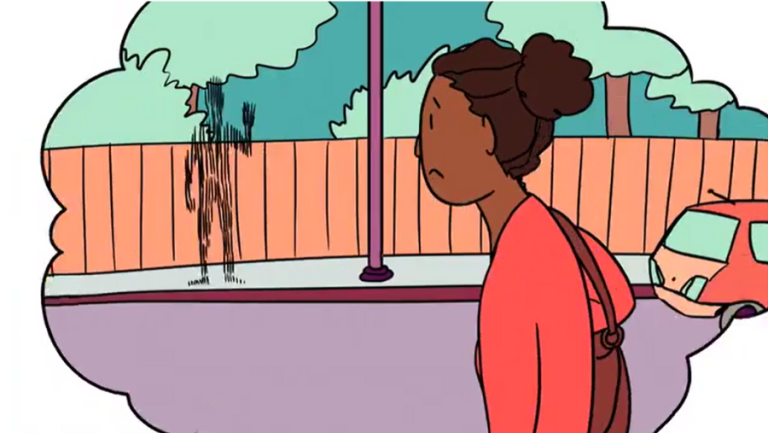
What is stalking?

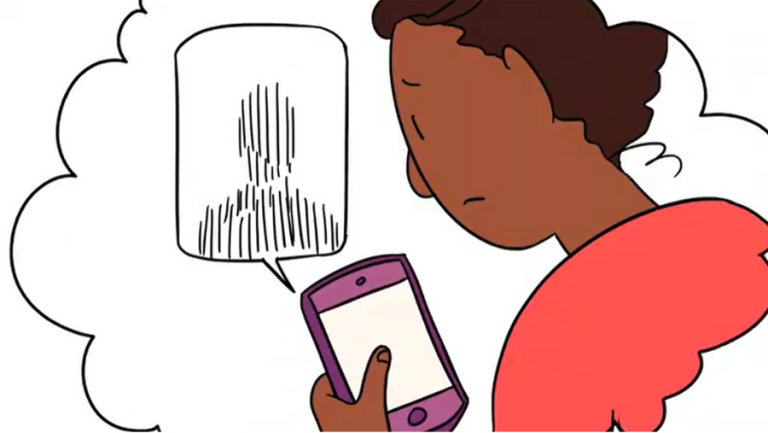
The telltale signs
A stalker repeatedly intrudes into another person’s life where they are not wanted and have no right to be. They are fixated, and persistent. Stalking may not involve physical violence but can escalate in intensity or go on for months or even years, causing unthinkable mental distress. It can be life-changing.
Anyone can be a stalker, and anyone can be a victim. Stalking is shockingly common.
It is never too early to seek help, or to try to help a friend.
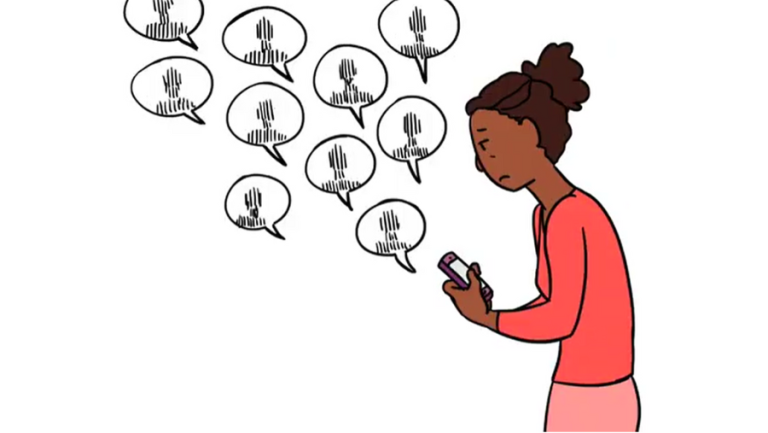
A pattern of behaviour
There is no legal definition of stalking in the UK, but it is generally agreed to be “a pattern of unwanted, fixated and obsessive behaviour which is intrusive and causes fear of violence or serious alarm or distress”.
The FOUR acronym
Fixated, Obsessed, Unwanted, Repeated—highlight the elements of personal fixation that characterise it and help to distinguish it from harassment. No list of behaviours can fully characterise stalking, as a stalker could always find other ways to stalk.
Risk of escalation
Stalking may not involve any form of physical violence, but it can escalate in intensity or persist for months, years, or even decades. The levels of mental distress it causes can be unthinkable and are often life-changing. It is estimated that over 70% of victims show symptoms of PTSD.

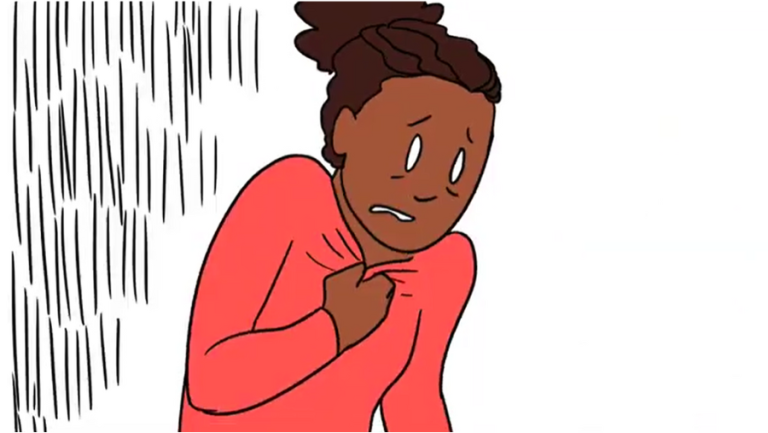
The real impacts of stalking
What stalkers might do
What victims might feel
-
Call, hang around outside or enter your home or workplace
Follow you or track your movements
Show up wherever you go
Send unwanted gifts
Send unwanted letters, DMs, texts and emails
Put spyware on your phone
Hack your socials
Threaten you
Threaten to share personal photos of you
Edit photos of you and share them
Threaten to commit suicide
Message your friends or family
Spread harmful rumours about you
Continue to contact you after you have told them not to
Constantly message you
Post untrue things about you
Set up fake accounts
Accuse you of stalking
-
Scared
Grief
They are being dramatic
Paranoid
Traumatised
Lonely but never alone
Crazy
Self-doubt (Imposter syndrome)
Trapped
Confused
Angry
A lack of control
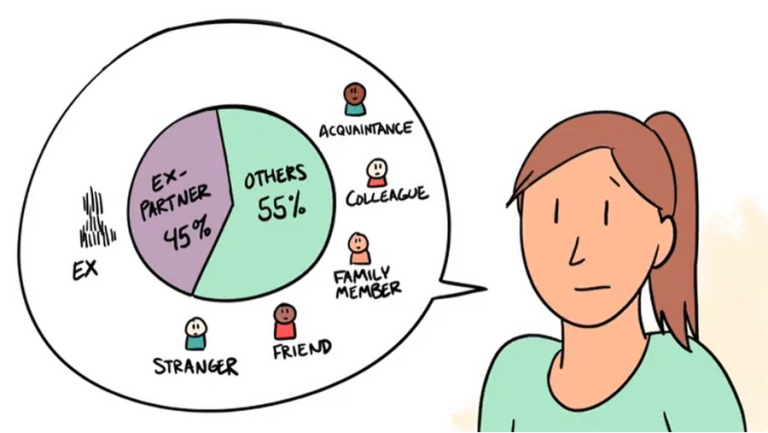
Why do people stalk?
- Rejection
-
Being dropped by someone can be hard for anyone. Most of us get angry, get sad and move on. Some people don’t, though. They can end up spending a lot of time either trying to make up with or punish the other person. They might:- Message constantly
- Turn up uninvited
- Get angry and spread rumours
- Loneliness
-
Some people can believe there is a connection or relationship between themselves and another person even when one does not exist. The need for a relationship can lead to intrusive behaviours that can be unsettling or scary.
They might:
- Leave gifts
- Write poetry
- Tell people they are in a relationship
- Resentment
-
Feeling mistreated can lead people to need revenge and to get back at a person, often in unpleasant ways. They might:
- Make complaints
- Make false allegations
- Social awkwardness
-
When someone is lonely but also has poor social skills, they may genuinely not understand a ‘no’ and be indifferent to the distress they are causing by pursuing a dead-end. They might:
- Turn up without an invitation
- Genuinely believe they are in a relationship
- Violence
-
The rarest behaviour is motivated by violence alone. There is no other reason for the fixated behaviour than to get kicks from causing pain.
Being dropped by someone can be hard for anyone. Most of us get angry, get sad and move on. Some people don’t, though. They can end up spending a lot of time either trying to make up with or punish the other person. They might:
- Message constantly
- Turn up uninvited
- Get angry and spread rumours
Some people can believe there is a connection or relationship between themselves and another person even when one does not exist. The need for a relationship can lead to intrusive behaviours that can be unsettling or scary.
They might:
- Leave gifts
- Write poetry
- Tell people they are in a relationship
Feeling mistreated can lead people to need revenge and to get back at a person, often in unpleasant ways. They might:
- Make complaints
- Make false allegations
- Turn up without an invitation
- Genuinely believe they are in a relationship
The rarest behaviour is motivated by violence alone. There is no other reason for the fixated behaviour than to get kicks from causing pain.

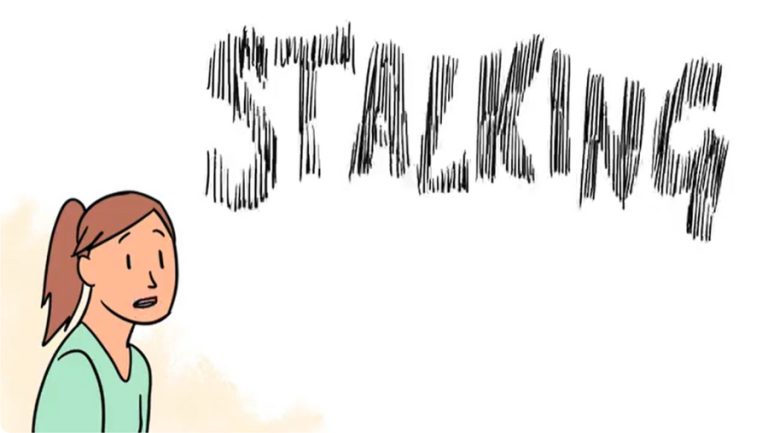
It is all too common
Anyone can be a stalker, and anyone can be a victim. And it is shockingly common. At its current levels, stalking will affect around 1 in 5 women and 1 in 10 men during their lifetime. It is never to early to intervene, both to protect the victim and to manage the perpetrator.
young people are stalked every year in England and Wales alone